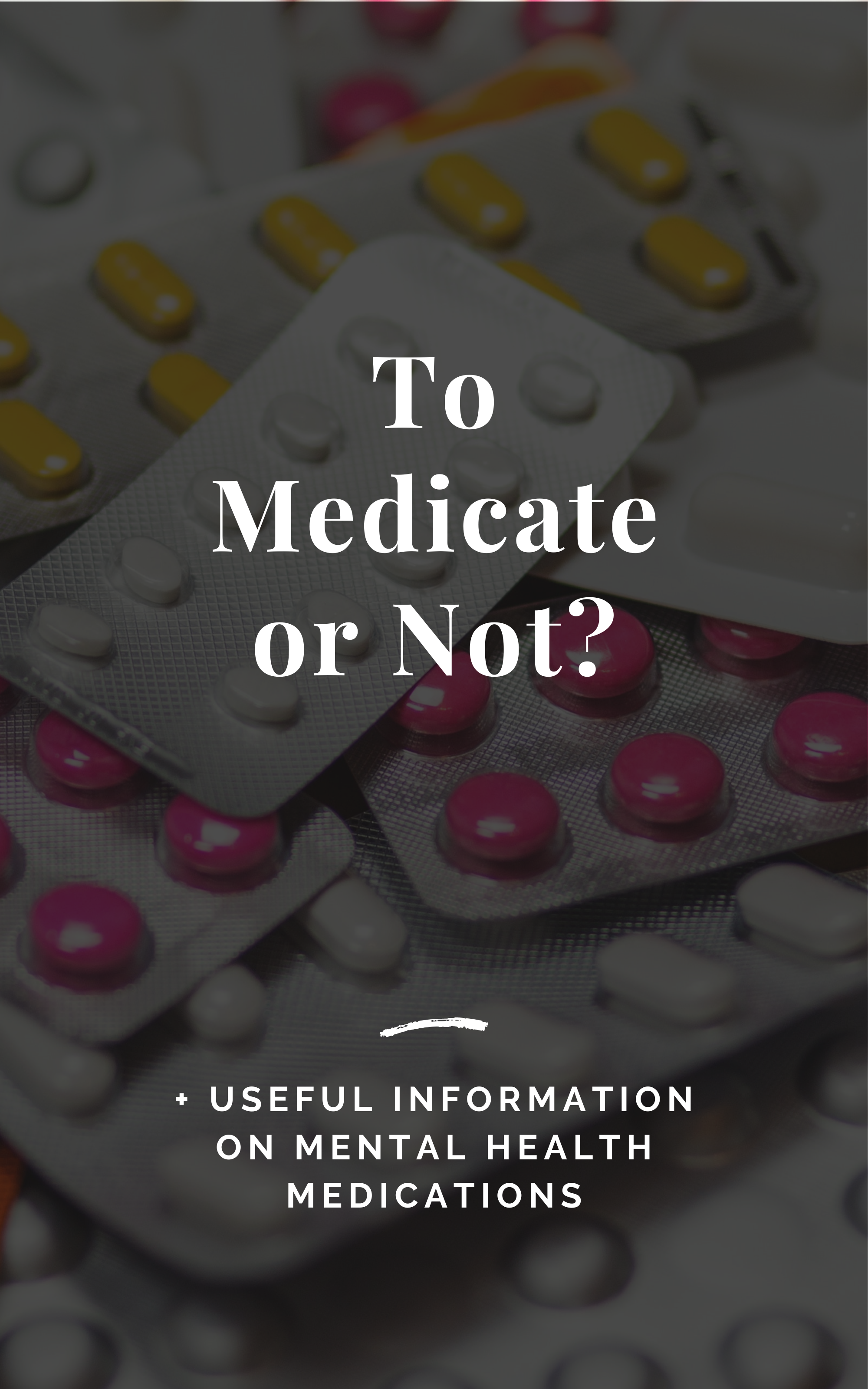I know that a lot of people have trepidation about anti-anxiety and depression medications. So I am here to open a discussion and offer information and my perspective.
I was raised homeopathic, so medications were not something we were offered when I was younger. And I appreciate that my mom wanted to find a wholistic approach to most of our ailments. So, I would say that I am not one to quickly jump to a medication as the solution. However, there are instances where medication is indicated and can have a huge impact on someone’s life.
When we are truly suffering, either emotionally or physically, we cannot enjoy our lives or use the tools to manage our suffering because it is too consuming. The suffering become a black hole and there is not enough light to find the path out. Our feelings are like the dial on a radio; we never want them blaring where they drown out everything else. If the depression, anger or anxiety is at its maximum volume, then therapy or meditation can’t really work.
Here is the thing, while I offer tools to manage emotions and thought patterns, if you can’t find a baseline fo happiness how will you know what you are working towards? I find that in certain circumstances, we first need to get back to that baseline before we can use the tools which will keep us there. Bottom line--no one should have to be suffering if there are resources available to make life better. So when I see someone truly suffering and they can’t even access the tools I am offering, I suggest medication.
This comes up a lot with teens. A teen is really struggling and depressed and suffering, but the parents are really nervous about medication; they are afraid it will change their child in some way. I explain to them that their child is suffering and there is a resource out there which can help why wouldn’t we try it? In fact, this is a concern with adults too. I am often asked if it will take away a person’s emotions and change their ability to feel. The answer is no. The medications do not take away your ability to feel, they only turn the volume down on those feelings. So instead of the feeling drowning everything else out, it is more in the background and manageable.
Some practical information: most of the side effects of medications go away after three weeks of use. I don’t know why, but this is the magic number of weeks. So no need to quit before three weeks. Also, they work by changing the synapse in your brain. They are inhibiting your brain from reabsorbing neurotransmitters and therefore altering your brain chemistry. Since your synapse change every 4-6 weeks, you most likely wont feel the full benefit of the medication for 4-6 weeks. So don’t hit the panic button if it feels like they aren’t working right away!
There are several classes of medications:
1) SSRI’s- Selective Serotonin Re-uptake inhibitor. This works by inhibiting the reabsorption of serotonin so there is more of it floating around in your brain. This tells the brain to start making more serotonin and changes the synapse. Example: Lexapro
2) SNRI’s- Selective Norepinephrine Reuptake Inhibitor. Works the same way as the SSRI’s. Example: Effexor
3) DNE- Dopamine and Norepinephrine enhancer. Different class of medication and tends to be energizing. It works for people with ADHD as well. Example: Wellbutrin
4) Mood Stabilizers/ Anti Psychotics- These are used for major mood disorders such as major depressive disorder or Bi-Polar. Example: Lithium.
I want to share that I have used SSRI’s very successfully. They have been a god send when I have felt unable to resource myself. For those who have a biochemical imbalance SSRI”s/SNRI’s are like any other medication necessary to treat a condition. The fact is if you have a biochemical imbalance your brain is like a sponge with many holes in it; it just loses a lot of of the neurotransmitter. So you need more of that neurotransmitter in your system to begin with. There is nothing wrong with giving your body what it needs.
This is not to say that when you start to feel better you should just ditch therapy. No, a wholistic approach is the best approach. Finding the tools to sustain that baseline is really important, and someday you will want to go off of the medication so having sustainable practices are just as important. Medication is not a replacement for therapy. But I have seen medications change people’s lives. Teens become thriving and full of life again and therefore the family system does better as a whole. I have seen adults actually want to participate in their lives again or try new things without their anxiety prohibiting them. This a good option and I hope that my open discussion helps at least one person make a choice to not suffer anymore. Feel free to ask me any questions on this topic, I am here as a resource for you. And if you have an experience you want to share, good or bad, about being on one of these medications, please share below. As usual, from my heart to yours, see you soon!

